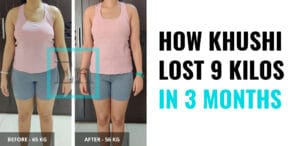The Game Changers was one of the highlights of 2019 for the vegan community. As a vegan myself I was very excited to watch this documentary because of the big names like Arnold Schwarzenegger, Jackie Chan and James Cameron. Veganism was going BIG.
It focuses on the health aspects of a vegan diet and proposes that it is better than diets which include meat. And that right there is the problem, the documentary seems to want to prove that a vegan diet is superior. They had a really great opportunity to propagate veganism in a balanced way, but they completely blew it by creating propaganda instead.
Before I debunk the specific claims in the documentary, I would like to point out a few general problems that were present throughout.
What is the meaning of Plant-based?
The term ‘plant-based’ is used very ambiguously. At first, it might seem obvious that they are referring to veganism. However, the numerous studies which they flash across the screen use vegetarian populations. Just in case you didn’t know, vegetarianism also generally includes dairy products while veganism doesn’t. Therefore, the only possible conclusion over here is that they used the term plant-based to be able to include a larger number of studies. This actually weakens the case for veganism. I’ll illustrate this with examples in the rest of my review.
Disproving Outdated Statements
The second is stating extreme and outdated statements such as – humans are carnivores or meat gives you energy and then debunking them to make veganism look glorious. These statements have already been disproved in the past and hardly anyone in the scientific or lay community believes in them anymore.
Faulty Evidence
They flash a lot of studies to lend scientific credibility to their arguments, but they commit a lot of blunders –
- Correlations – Many of the studies are correlational in nature yet they derive causative conclusions from them. When 2 variables are correlated, there might be a relationship between them, but you can’t be sure. For example, you might have heard of the ‘Ramsey Curse’ in 2011 – whenever Arsenal mid-fielder, Aaron Ramsey, scored a goal, somebody famous died the very next day. The first instance was when Osama bin Laden was killed the day after Ramsey’s win against Manchester United. Was there a correlation between Ramsey’s goals and the deaths of famous people? Yes. But did Ramsey’s goal CAUSE the death of these people? No!
- Anecdotes – The entire documentary is peppered with anecdotes of vegan athletes who claim that their performance improved after adopting veganism. Unfortunately, anecdotes are a very weak form of evidence and fall even below correlations in the hierarchy of evidence. Furthermore, there is no comparison of performance done before and after the athletes went vegan to validate their claims.
- Misrepresentation – Finally, there are multiple instances where they have taken studies and twisted the data, withheld important information or made erroneous conclusions to fit their bias and make veganism look superior.
Now let’s talk about the remaining claims.
Gladiators were Vegetarians
James Wilkes, the narrator of the Game Changers, stumbles across a study about the Roman Gladiators whose remains were buried at Ephesus, Turkey.
One would assume that the gladiators were predominantly meat-eaters, but the documentary concludes that they were plant-based. How? Based on the high amount of strontium they found in their bones. According to research, strontium levels are high in vegetarians but low in non-vegetarians.
The documentary is referring to a study that was conducted in 2014 where the bones of 22 gladiators were analysed. One of the authors, Fabian Kanz, appears in the documentary and demonstrates high strontium levels using a flame test. Here’s where things get interesting, strontium concentrations in the bones of an animal can be used to classify it into 3 classes –
- Herbivore – 400-500 ppm
- Omnivore – 150-400 ppm
- Carnivore – 100-300 ppm
According to this, if the gladiators were ‘predominantly plant-based’, the strontium values in their bones must lie in the 400-500 range. The study found that the gladiators had Sr concentrations of 459.9 ± 125 ppm. Here’s the catch – 460 ppm is just the average amount of strontium in the bones of all 22 gladiators and the variation is ± 125. You do realize that the minus bit could easily put some of the gladiators in the omnivore group, right?
In fact, here are the strontium values for every gladiator in the study. The values have been arranged in ascending order. As you can see, the first 9 values (249 to 380) fall in the omnivore range. This means that 41% of the gladiators were anything but plant-based. The study even found that 2 of the gladiators regularly consumed animal protein.

Adapted from Lösch et.al (2014)
Finally, the strontium method has one problem – marine invertebrates such as molluscs are also high in strontium. So, a mollusc eating omnivore could be mistaken to be a herbivore. Why is this small detail relevant? Ephesus, the site where the gladiators were found, is next to the Aegean Sea. Therefore, the gladiators would have had easy access to cheap seafood, including molluscs.

Ephesus, Turkey (Source: Google Maps)
Gladiators were mostly slaves or POW
When we think gladiator, we think of a jacked Russel Crowe with his muscles glistening in the sun. In reality, gladiators were mostly people who were slaves or prisoners of war. It’s highly possible that many of the gladiators ate meat before they were imprisoned. This means that many gladiators were from different places with different diets. The authors also mention this in the study –
“This leads to the conclusion that the individuals from the gladiator cemetery were a very heterogeneous group who consumed different kind of foods”
The documentary mentions that the gladiators were often called “barley munchers” and cites ancient texts as proof. While this is true, they ate it only because it helped them increase subcutaneous fat which helped protect their nerves and muscles from injuries. A cut in the fat layer wasn’t lethal, wouldn’t hurt a lot and moreover the open wounds made for a good spectacle. Being lean was a big disadvantage in this sport (sorry Russel Crowe).
While this does not automatically mean that they were heavy meat eaters, it just shows that they certainly weren’t plant-based. This is also the first instance where they used the term plant-based vaguely.
Vegetarian Athletes?
They start off this section by telling us about the outdated hypothesis of “meat gives you energy” which arose in the 1800s. No one, not even the dumbest guy in my gym believes that anymore. Yet they made it seem like the entire world, especially athletes, still, believe this hypothesis.
They disprove it by giving us examples of vegetarian athletes who set world records starting from the 1900s and then transition to modern vegan athletes. This is the second instance when they have interchanged vegetarians and vegans because they have grouped vegetarian and vegan athletes under the same umbrella. For instance, one of the athletes mentioned, Paavo Nurmi, grew up eating a diet of black bread and dried fish. He also practised vegetarianism between the ages of 15 and 21. Murray Rose, a champion swimmer, included milk and honey in his diet according to his interviews. In most cases, there is no strong evidence to prove that these athletes were either vegetarian or vegan.
Modern Athletes
The rest of the documentary is peppered with examples of 21st-century athletes. Over here, I feel that the documentary has done a good job of including athletes from a wide variety of sports to show that the vegan diet can be adopted by almost any type of athlete. At least in this case, the athletes are clearly vegan (if we are to take their word for it).
But again, the Game Changers provides very little evidence to show that it is veganism that improved their performance. The effects of genetics and training haven’t been eliminated. All the athletes provide only one type of answer – That they felt and performed better after going vegan. Which is great! But not to be taken as evidence of veganism being a superior diet.
They have also picked only those athletes that are performing well on a plant-based diet. However, the majority of world-class athletes eat meat, for example, Usain Bolt who ate 100 chicken nuggets before a race.
Connor McGregor vs. Nate Diaz
If I were to point out one of the most problematic sections in the entire documentary it’d be this one. McGregor clearly eats a lot of meat. The documentary contrasts this with Diaz’s plant-based diet and then directly cut to the match and show Diaz defeating McGregor. This is a very clever tactic since it led viewers to believe that Diaz won because he is vegan.
Couldn’t Diaz have won simply as an outcome of having trained better? Or the fact that he belonged to a heavier weight class than McGregor? McGregor could have also lost simply due to lack of adequate dietary carbohydrates since his diet was very meat-centric. They make you focus on the presence of meat rather than the absence of carbohydrate; both are present but only one gets the spotlight.
Here’s the kicker, McGregor beat Nate Diaz in the same year later in August at UFC 202 which was left out very conveniently. Based on the documentary’s logic, eating meat is the secret behind McGregor’s win. Also, what about the people who have defeated Nate in the past? Were they just better vegans?
I think the only take away from this section is that vegan athletes can be on par with non-vegan athletes. But to say that vegan athletes are the best athletes is simply stupid. If that were the case, then vegan athletes should be snatching golds in every sport.
Eating Protein instead of Carbohydrate
Dr James Loomis mentions that he has observed athletes eat a lot of meat (i.e. protein) a few days before the game and very little carbohydrate. He claims that eating protein at the expense of carbohydrates depletes glycogen levels which is detrimental for performance. To improve performance the athletes must switch to a plant-based diet. Yet again, they focus on the presence of meat rather than the absence of carbohydrate.
The drop in performance is just an outcome of the athletes not eating enough carbohydrate. A low carbohydrate diet in the days leading up to a game is detrimental for performance. Also, eating protein at the expense of carbohydrates will not lead to glycogen depletion because of a process known as gluconeogenesis. In this process, fat and protein are used to generate glycogen when there is a lack of carbohydrates in the diet. This is basic nutrition science.
Vegetarians get 70% more protein than the RDA
This calculation is based on the Recommended Daily Allowance (RDA). The RDA for protein is 0.8 g/kg of body weight per day. For an average 70 kg male, this works out to be 56 grams of protein per day. Note that the RDA only tells us the amount of a nutrient that must be consumed to NOT GET A DEFICIENCY. This is NOT the same as the optimal intake for that nutrient. The subcommittee that drafted the most recent RDA guidelines also mention this –
“For certain nutrients, the requirement may be the amount that will prevent failure of a specific function or the development of specific deficiency signs—an amount that may differ greatly from that required to maintain body stores”
The RDA for protein has also been criticised to be too low and a higher RDA of 1.2 g/kg for young healthy individuals has been recommended.
Are they really getting 70% more protein?
They reached this conclusion based on this study. According to the study, vegetarians consume approximately 72 grams of protein per day on average. 72 grams of protein works out to just above 1g/kg of bodyweight protein per day for the average male. Also, vegetarians in this study are getting only 29% more protein than the RDA and not 70% as the documentary claims. Sadly, even their math is off.
Protein in a Peanut Butter Sandwich = Protein in Beef
Technically, anything can contain as much protein as 3 ounces (85 grams) of beef if you don’t account for calories. 85 grams of ground beef contains 18 grams of protein and 200 calories. Let’s assume that our peanut butter sandwich contains 2 large slices of bread which contribute 5 grams of protein. You would need to add 50 grams of peanut butter to get in the remaining 13 grams of protein which is a whopping 470 calories including the calories from bread.
So, yeah, a peanut butter sandwich does contain as much protein as 3 ounces of beef except with double the calories. The more important question is – Who the heck uses 50 grams of peanut butter in a peanut butter sandwich?!
Burrito Test 1 – Plant-based Diets and Performance
Dr Vogel claims that eating a plant-based meal before a game improves performance while meat harms the same. This is because a plant-based meal improves endothelial function while meat deteriorates it. To prove his claim, he conducts an experiment with 3 NFL athletes and one of them is vegan. However, there are a lot of problems with this experiment before we can even begin to look at its results.
No Standardization
A standard protocol before conducting any experiment such as this is to equalize subjects for as many variables as possible before you begin. In this experiment, one of the subjects has already been vegan for 3 years while the other two are meat-eaters. This is problematic for a variety of reasons, explaining which will turn this into a Research 101 post. Primarily because we can’t be sure if the results are an outcome of the burrito being given or an outcome of following veganism or non-veganism for a long period of time. They have also not reported what they have eaten before the experiment. Because of this, you cannot be sure of how much influence this might have had on the results. Finally, the plant-based and animal-based burritos didn’t have the same macros or calories which is also a big confounder.
N=3
What’s absurd about this experiment is that they are making their claims based on a sample size of 3. This is so small that you can’t even make correlations, yet they make a direct causal link. Plus with the involvement of the vegan athlete, you might as well conclude that the sample size was actually 2. Why? Because the only role he had was to eat the same 2 vegan burritos for free. There was no point of including him if he had to eat the same burritos in both the tests.
Dr Vogel’s Eyes
They use one of the most accurate tools on the planet to measure the blood quality – Dr Vogel’s impeccable eyes. Clear blood is good and cloudy blood is bad, simple! According to him, the cloudiness is a result of fat in the blood which impairs endothelial function and reduces blood supply to the muscles and reduces performance. The cloudy blood is nothing to fear, it’s just the fat from the meal that has entered the blood as a result of digestion. This will eventually get stored in adipose tissue.
It is generally a good practice to eat a high carb meal before a game. A high-fat meal before a game isn’t optimal because the conversion of fat to energy is a lot slower than the conversion of carbohydrates. But you can’t extrapolate that from this “experiment” because they didn’t even measure performance.
No Measurement of Performance
The endpoint should be performance. They claim that a plant-based pre-workout meal will improve performance but don’t test a single parameter of performance. They don’t carry out any tests for endurance or strength. They could have at least compared the vegan athlete’s performance with the meat-eating ones which could have given us an idea about performance differences.
No Measurement of Endothelial Function
At this point, I feel like the only purpose for this experiment to exist is to praise Griff Whalen (the vegan athlete) for being vegan. They talk about meat deteriorating endothelial function but don’t measure endothelial in any of the athletes!
Supporters of the endothelial function theory claim that high-fat meals cause endothelial dysfunction which increases the risk for atherosclerosis. Vogel’s own paper clearly states that endothelial function “might” be a predictor of future cardiovascular events.
There is some support for the endothelial dysfunction hypothesis. However, the documentary looks at this risk factor in isolation. There are a lot of behaviours which tend to bring down the risk of atherosclerosis as well. For example, exercise reduces the risk of atherosclerosis which is something that athletes do a lot of.
Firefighters and Plant-based Diets
Caldwell Esselstyn puts a group of unhealthy firefighters on a plant-based diet and unsurprisingly their health improved. Esselstyn claims that their bad health was a result of eating animal products and replacing animal products caused health improvements. While it’s great that their health improved, a plant-based diet did not CAUSE the improvements.
There is no mention of what the firefighters were eating before they were put on the diet. We only know that the firefighters ate animal products. But before we conclude that the animal products are responsible for their health issues, we need to ask the following questions –
- How many calories were they consuming?
- What was the frequency of eating animal foods?
- How much processed food were they eating?
- What are their activity levels like?
- Do they smoke or drink alcohol?
These are important questions because time and again the research has shown that weight loss is a result of a calorie deficit and any healthy diet which includes a lot of whole food, fruits, vegetables and is high in protein can achieve this.
Processed food has been associated with an increased risk of hypertension, low HDL and high LDL cholesterol. If they were eating a lot of processed food before adopting the plant-based diet, then just excluding these would have greatly improved their health.
The plant-based diet did improve their health but the claim that animal products caused all their problems isn’t true. If it were, then any diet which includes animal products should have little to no positive impact on health. Let’s take the Mediterranean Diet for example which includes a high intake of vegetables, fruits, nuts, cereals, whole grains, olive oil, moderate amounts of fish and poultry and a low intake of red meat and dairy products. Multiple studies have found that this diet is useful in treating as well as preventing obesity.
I have written about the relationship between red meat and cancer which is also something that is spoken about in the documentary. You can read my article here.
Humans are Herbivores
Now the next argument that’s put forth by the documentary is “We are not carnivores and therefore not meant to eat meat”. I wholeheartedly agree.
We are not carnivores, we are omnivores. By virtue of omnivory, it is also true that we are not meant to eat only meat. We can survive on either meat or plants or both! The problem is that it tries to debunk a statement that isn’t true i.e. we are carnivores. So, if you compare a human to a carnivore, of course, you will see the stark differences in anatomy.
Just because we aren’t meant to eat meat doesn’t mean that we can’t or shouldn’t. We aren’t built to eat potatoes either but almost the entire human civilization consumes them in large quantities. How? Cooking is the answer. The advent of cooking vastly increased the range of foods humans can consume and meat was one of them. Many scientists even suggest that cooking allowed us to eat larger quantities of meat and digest them very easily. This paved the way for our brains to develop as our guts became smaller and consumed lesser energy.
We can’t produce our own Vitamin C which proves that we need plants
We can’t produce our own Omega 3 either and we must acquire them through fatty fish like salmon. Does this mean that we are meant to eat fish? No! The truth is that there are a host of nutrients which must be acquired from the diet to survive and some of these include animal sources. However, with the advent of supplements, we no longer need to rely on killing animals to acquire them. Dependency on plants to produce our own Vitamin C only proves that we need plants in our diet to survive, not that we need only plants.
We have trichromatic vision which helps us spot fruits and vegetables
This does not mean that we must eat only fruits and vegetables. Trichromatic vision helps us spot a variety of things including prey in the woods which can be hunted and predators which could hunt us.
I would highly encourage you to read this evidence-based blog post by the Vegan Biologist to see a full deconstruction of this argument.
Burrito Test 2 – The Penis Experiment
The super scientific burrito test is brought back in this section for yet another experiment and this time it’s adopted by penis expert Dr Aaron Spitz. At this point, somebody really needs to tell them that a sample size of 3 does not qualify as an experiment.
Given the results, I am surprised that they didn’t drill a hole in the bed with their ‘quality erections’ after the plant-based burritos. I am not going to comment on this experiment because I have already mentioned my qualms with their methodology in the first burrito test and Dr Spitz himself mentions that this isn’t a scientifically validated study.
However, they cite a study to support their claims of greater testosterone in vegans. The study found that the vegans had 7% greater testosterone than the omnivores (not a huge difference really) but also 23% greater sex hormone-binding globulin (SHBG). SHBG binds to free testosterone and does not let it exert its effects on the body. Therefore, while vegans had slightly more testosterone, not all of it was available.
Final Words
Understandably, if you are vegan, you are probably going to hate me for debunking the Game Changers, because hey, at least they are trying to save animals. But hear me out. At the end of the Game Changers, I was left feeling not just disappointed but also angry because it probably did more harm than good to the vegan community and the animals. Vegans all over the world are holding watch parties and potlucks around this documentary.
Non-vegans around the world have been deeply influenced by this documentary and many have gone vegan after watching it. It’s a good thing if the documentary created more vegans, right? Strictly speaking in terms of numbers, the number of vegans probably increased. But at the same time, new and existing vegans, now believe in the misinformation propagated by this documentary. It’ll only take another documentary that glorifies meat-eating to convert most of these new vegans back to eating meat. A movement that uses misinformation doesn’t survive for too long because it loses credibility.
I’d have been happy if they just showed the audience that it is possible to thrive being vegan but no, they just had to be classical vegans and take a dump on meat every time they had a chance. It’s like their motto was to make vegans happy and anything that even remotely challenges veganism is discarded. There is no harm in admitting that the science simply doesn’t support the claims of a vegan diet being superior to other diets. The sooner you admit that the faster you can fulfil the real aim of veganism – to save the animals.





12 Responses
In the Documentary, the ‘penis’ Doctor does say ‘ this test doesn’t qualify as a scientific experiment’ but you don’t mention that in your critique????
Hi Jag, thanks for your comment. In fact, I have acknowledged that the doctor does mention this in the documentary – “I am not going to comment on this experiment because I have already mentioned my qualms with their methodology in the first burrito test and Dr Spitz himself mentions that this isn’t a scientifically validated study.”
Also… in your debunk you make no mention of the repeated information ( back by scientists studies) that backup the idea that ‘meat is bad for you’… the most current medical studies around the world point to meat being an increasingly obvious catalyst to cancers and gut/heart problems … or did you not think this also needed clearing up in your debunk….
Hi Jag, so I have actually spoken about the link between red meat and cancer over here – Does Red Meat Cause Cancer?. Let me know if that resolves your query. Secondly, the documentary just keeps throwing screenshots of research papers but doesn’t actually delve into the research paper at all. Their website also mentions some research papers but nothing to directly suggest that Red Meat ‘Causes’ Cancer. Finally, just flashing research papers on the screen doesn’t automatically legitimise the information being provided. The burden of proof lies on the makers of the documentary since they are the ones making the claim and to provide that evidence, they need to actually connect what’s being said in the research to what’s being said on-screen.
However, I am happy to engage in a conversation with you about any glaring pointers which I may have missed out on. Thanks!
Have you not read the China Study? Biggest study to date? They did prove animal protein causes cancer. Beef is rated a class 1 carcinogen. That’s no secret.
Not even close to proving meat causes cancer
Hi Lynn, thank you for your comment. This article is a critique of The Game Changers and therefore I have addressed only those points that have been brought up in this documentary. Regarding The China Study, I have certainly heard about it an innumerable number of times but I haven’t had a chance to read it yet and therefore, I shall maintain a neutral stance on it until I get a chance to critique it myself. But I have heard that there are quite a few critiques that have been written about it, with the most popular one being the critique that was published by Denise Minger.
Regarding beef being a class 1 carcinogen, that’s actually incorrect. According to the IARC, processed meat is a class 1 carcinogen, not red meat in general (which beef falls under). So you are going to have to be clear about if you are referring to beef or processed beef. You can read this article of mine for clarity – Does Red Meat Cause Cancer?
Hey, I’m anti Vegan but I have to give you full credit here for being honest in your appraisal of such a poor documentary. Don’t agree with everything you said but if both sides were able to be as honest with data as you, we would be in a much better place.
We should certainly unite against factory farming.
Full respect
Thank you, I am curious to know about what points you don’t approve of. Not trying to debate. Just wanted to know 🙂
Glad I saw this. Any recommendations for reliable documentaries revolving vegan culture?
Within the last 5 years?
Last thing I saw was “bad vegan” and that was shady.
Hi Dan, thank you for your comment. I am not aware of any other documentaries since I have neither searched for any nor have I come across any, but if I do, I’ll be sure to watch it and critique it in the future!
Comments are closed.